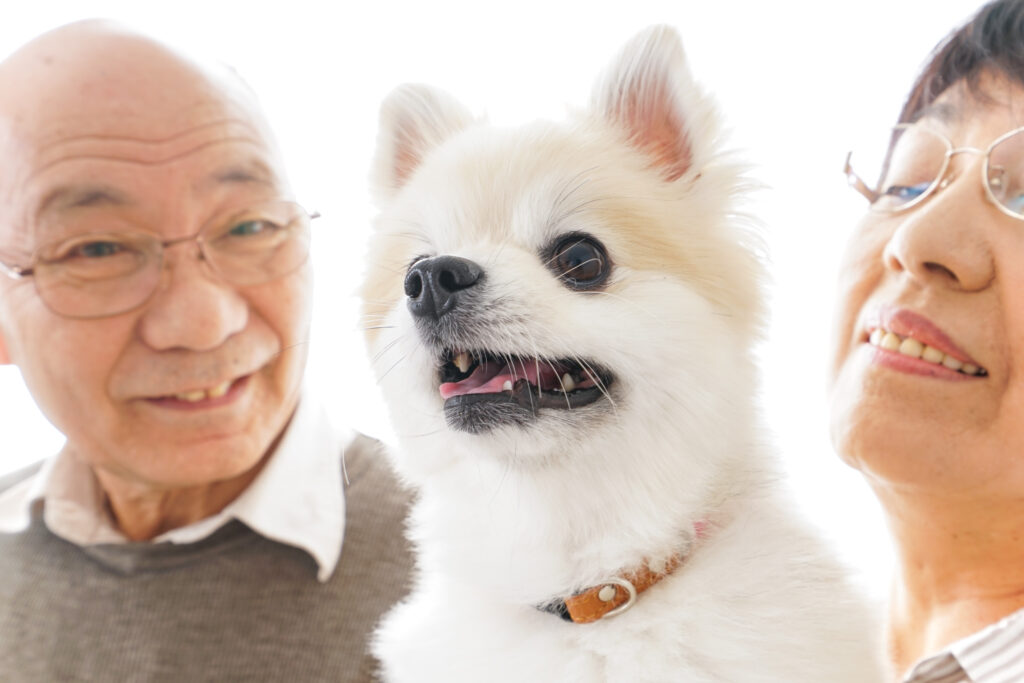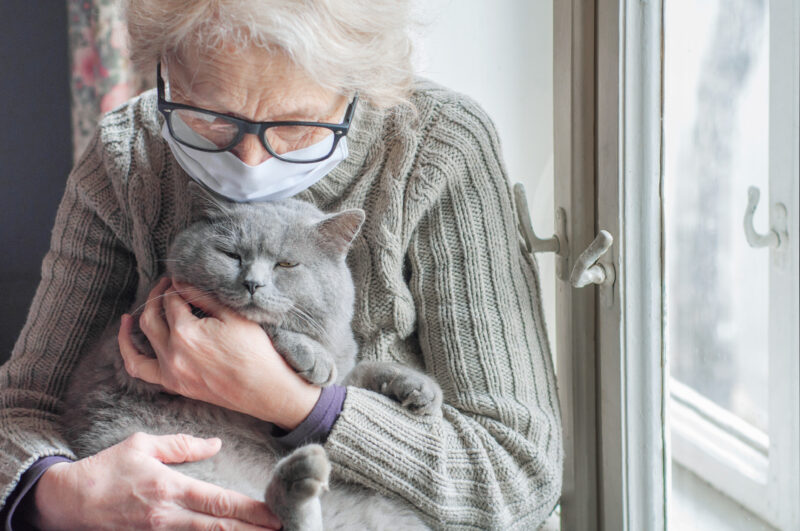Older adults are not immune to mental health issues. According to the CDC, an estimated 20 percent of people 55 years and older experience some type of mental health concern. Companionship, such as regularly seeing a friend for lunch or a family member at game night, can stave off feelings of isolation. Recent research also shows that a senior’s mental health can benefit from pet ownership and animal companionship.

Pets and mental health
Erica Curcio, MA, licensed mental health counselor and registered art therapist, said that the benefits of pet companionship for seniors are “beyond measurable.”
“I’ve always appreciated the instant spark of joy that can come across someone’s face, especially someone living with dementia, when an animal is introduced to them. People who may not have been animal lovers light up almost instantaneously and often go into a role of caretaking.”
Curcio added that when an older person has an animal that relies on them, they feel more valuable. Accepting this caretaker role can help give a senior’s life purpose.
Pets also can ease the anxiety and sadness some seniors experience.
Dr. Maureen K. Murithi, DVM at Excited Cats, said pets help reduce stress and symptoms of depression. Interacting with pets can release serotonin, a feel-good hormone. “Physical contact, especially during petting or grooming, can help calm anxiety,” Murithi added.
In addition to helping seniors feel happy and more valuable, pets can provide meaningful physical connections.
In the study, Human-Animal Interaction and Older Adults: An Overview, researchers Nancy R. Gee, Megan K. Mueller, and Angela L. Curl found pets can provide social support for seniors, which can reduce the risk of loneliness. In the same study, the researchers reference previous work by Steed and Smith that found that animals can help mitigate some of the stressors that come with the life transitions aging adults face.
Dr. Ellen Marcinkiewicz, BVM, BVS, BVMedSci, MRCVS, and contributor at Miss Cats, added that something as simple as taking a dog for a walk helps a senior stay active and socialize within the community.

Animals who benefit seniors’ mental wellness
Although any pet can provide unconditional love, a senior should choose a pet that best fits their lifestyle. “There might not be a perfect animal out there, but we need to think about safety and whether the animal could be a tripping hazard or might pull too heavy on their leash,” Curcio added. Seniors also should consider the energy level and the activity needs of an animal.
Pet ownership alternatives
Although many seniors successfully own and care for pets, others are hesitant to adopt for financial or physical reasons. However, Forbes noted that a senior’s mental wellness could benefit from simply interacting with a pet.
For example, a senior could consider fostering a pet. Fostering entails caring for an animal shelter pet in your home. The shelter pays for all the pet’s food and vet care until the animal gets adopted and moves into their permanent home.
If seniors think they cannot care for a pet in their own home, they could also consider volunteering at a local shelter or finding a pet visiting service. Curcio noted that in Boston, an organization called PetPals brings pets (generally cats and dogs) to nursing homes and assisted living communities.

A relationship that benefits humans and animals
Research indicates that pet ownership and animal-assisted therapy improves the health and well-being of older adults. Seniors’ mental health and pets’ general well-being can benefit from pet ownership or regular pet visits. Pareen Sehat, registered clinical counselor at Well Beings Counselling, noted that “It is important at an older age to take up healthy activities, and having a pet to accompany you can be the best of the bunch.”

